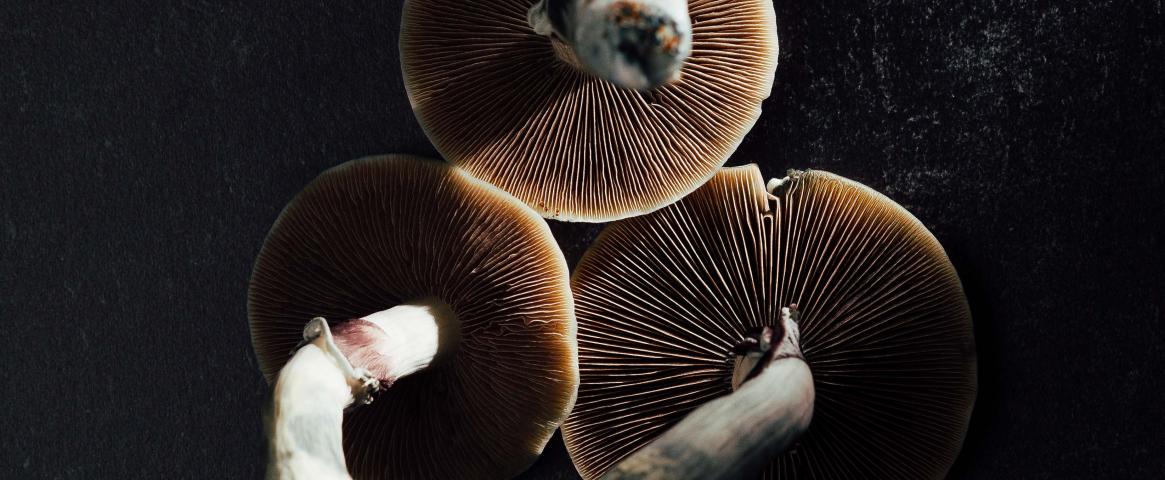By Kristi Marciano. Mentored and edited by Joshua Sokol.
In the 1960s, the United States government limited research on psychedelics such as LSD, psilocybin, DMT, and mescaline arguing they had “no currently accepted medical use and a high potential for abuse.”
But that decision did more than make a political statement amid that era’s culture wars: it halted more than twenty years of research into the potential therapeutic use of psychedelics.
Now, though, as governments begin to ease restrictions on psychedelic therapy research, these once taboo substances are finally being recognized for their full medicinal potential.
In a February 19, 2022, panel at the annual American Association for the Advancement of Science conference, researchers and practitioners of psychedelic-assisted psychotherapy discussed promising results from studies and clinical trials that could tip the balance in favor of bringing psychedelic therapies into mainstream medical practice.
“You’re taking a drug that is ramping up the ability for the brain to be reshaped or molded,“ said Robin Carhart-Harris, a psychologist at the University of California, San Francisco.
Psychedelics work by stimulating a specific serotonin receptor in the brain, which increases the production of specialized cells needed to grow new neurons and strengthen synaptic connections.
“So, the question is,” Carhart-Harris said, “what do you want to shape or mold in the brain?”
Most research on using psychedelics to treat mental disorders has focused on mood disorders such as anxiety, depression, and PTSD. But psychedelics could also help target unhealthy habits at the root of other cognitive disorders such as OCD, eating disorders, and substance abuse.
In a proof-of-concept trial conducted at Johns Hopkins University, more than 80% of smokers who received a psilocybin therapy session with a target quit date, plus 12 weeks of cognitive behavioral therapy, did not use tobacco for at least six-months after the treatment.
“The therapeutic gold standard is about 25%-30% abstinence at six-months,” said Fred Barrett, a cognitive neuroscientist also at Johns Hopkins University. “So, this is a remarkable outcome.” (A randomized control trial is currently underway to verify these findings).
While inducing brain plasticity is what make psychedelics so useful in therapy, this same vulnerable state needs to be closely controlled and monitored to ensure a healthy readjustment of mind and behavior.
Devon Christie, a psychotherapist at Numinus Wellness Inc., emphasized a need for proper therapeutic context for psychedelic therapies once patients enter a hyper-vulnerable mental state and become exceptionally sensitive to suggestion.
“Elements like music, the aesthetic of the space, the qualities of the person or people who are in the room, and the mindset of the patient are all very important factors for the outcome of the experience,” she said.
But while science is just beginning to grapple with the importance of context, these factors have been known throughout the Indigenous cultures that have used psychedelics for hundreds and even thousands of years.
“There are cultures across the globe that have used psychoactive plant medicines in ceremonial context since time immemorial,” Christie said. “And what is the ceremonial context if not a very specific set and setting?”
With promising results emerging from the scientific and medical communities, all three panelists emphasized the urgent need for governments – the United States and Canadian governments in particular – to reclassify psychedelics away from the old, restrictive designation adopted in the 1960s. Without this reclassification, they argued, research into psychedelics and the potential for their inclusion as a viable treatment method will continue to be severely limited.
But panel host Tura Patterson from the Usona Institute, a medical nonprofit that supports research into psychedelic therapies, believes there is good reason to believe the tide is shifting already. “The very fact that the AAAS included this topic on psychedelic research at this year's event,” she said, “is evidence of how this work has already made its way into the mainstream.”
Kristi Marciano is a professional content writer and emerging science journalist. She is currently earning her master's degree in science writing from The Johns Hopkins University. You can follow her on Medium and Twitter, or you can reach her at kristimarciano1@gmail.com.
Hero photo by Christopher Ott on Unsplash

